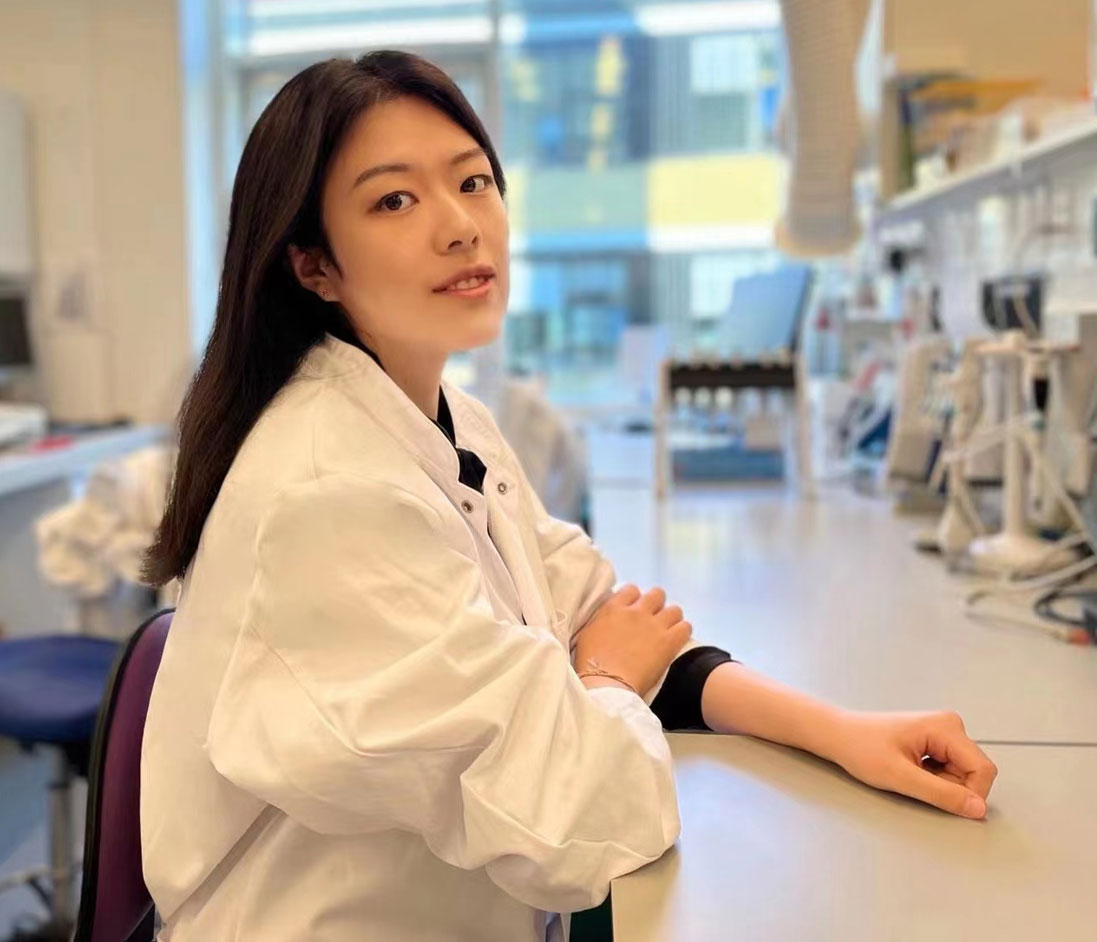Hanxi Li

Email: hanxli@dtu.dk
Affiliation: Department of Health Technology, Technical University of Denmark, Kgs. Lyngby, Denmark.
PRESENTATION
Growing up in a coastal city, everything about aqua holds a fatal attraction for me. For this reason, I entered China Agricultural University and devoted myself to the major of aquaculture. This four-year study developed me not only a comprehensive understanding of aquatic biology and the aquacultural system but also a resolute desire to explore more in the related field. Thus, I enrolled in the Research centre of Eco-environmental sciences University of Chinese Academy of Science for further study.
My master's training centred on invasive species under human activities-influenced aquatic ecosystems which concerned two tracks: the exploration of molecular monitoring methods based on the environmental DNA of invasive species and their plastic performance against environmental challenges. These projects developed my multifaceted skills from the evaluation of environmental adaptation via molecular technology and omics analysis, to the methodological improvement of primer design and detective methods optimisation, which would be a great boost to my present research on the eDNA- based pathobiome detection and analysis in recirculated aquaculture systems.
Environmental pathogens are diverse, and invisible but could be great threats, the good thing is, we can utilize the eDNA-based tools to track their traces of living, observe their dynamic growth or extinction, and even predict their future. The eDNA based pathogen detection could be a challenging job and I want to explore it, discover it and be a good guardian of human and animal health.
Project description
ESR 12: High sensitivity environmental DNA-based detection and quantification of pathobiome and off-flavour genes in recirculated aquaculture systems
With the increasing demand for aquatic products, the aquaculture industry showed extraordinary development and has become the fastest-growing animal food system. Owing to the advantages of the high volume of production with low water consumption and control of environmental parameters, the emergence of a new fish breeding system named recirculating aquaculture systems (RAS), has become mainstream. The reuse of the water may inescapably cause problems concerning maintaining a high-water quality, increasing the transmission of parasitic, bacterial and viral pathogens. For instance, the infection of some bacteria will cause off-flavour (maintenance of geosmin) in the fish and decrease sensory quality, furthermore, severe pathogenic infection will challenge the health of the fish and lead to significant financial losses unless these microbial pathogens can be identified and eliminated at an early stage. Simultaneously, the increased focus on fish welfare and biosecurity also calls for stricter disease control and health management in the RAS, which largely relies on methods for early monitoring of the occurrence and density of microbial pathogens. Given the advantage of relative ease in application and cost-efficiency, the rapidly developing field of environmental DNA (eDNA) provides modern tools to reveal and quantify novel and known microorganisms, and the probing investigation and method development based on the eDNA has become the study hotpot in multiple disciplines including environmental sciences, molecular biology and ecology. In this light, the co-opted uses of molecular technology and eDNA in pathogen detection will provide new insight into water environmental monitoring and become the driving force for the development of aquacultural biosecurity.
In this project, we devote ourselves to eDNA based detection of pathobiome and off flavour genes in recirculated aquaculture systems, from method development to application, integrating multidiscipline including molecular biotechnology, immunohistochemistry and environmental sciences. Starting from the assessment and validation of different eDNA extraction methods, we will build up a series of standard operations to minimize the influence of environmental inhibitors and obtain unbiased eDNA to sufficient levels; then develop a novel eDNA-based qPCR chip via the high-sensitivity Fluidigm platform for the early monitoring detection. Additionally, we will combine these results with immunological experiments to evaluate fish health and determine the detecting threshold of dominant pathogens according to the specific histopathological features. Finally, we will explore the use of other high-throughput methods (e.g. metabarcoding) for microbial pathogen discovery and allow the identification of novel potential pathogens which will, on one hand, lead our study from limited species to pathogenic organism community, and on the other hand, further improve the eDNA-based detection chip, including the early monitoring of more, important microbial pathogens.
